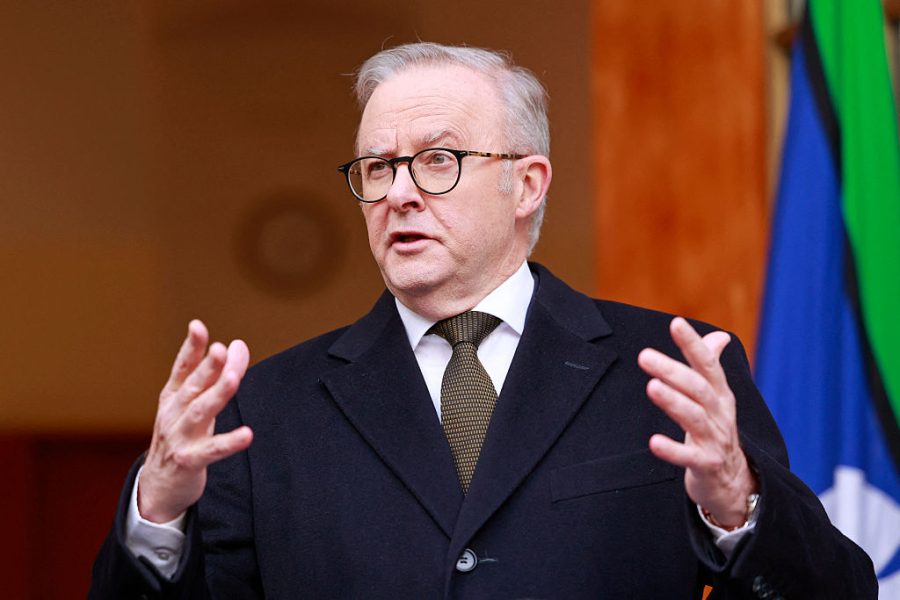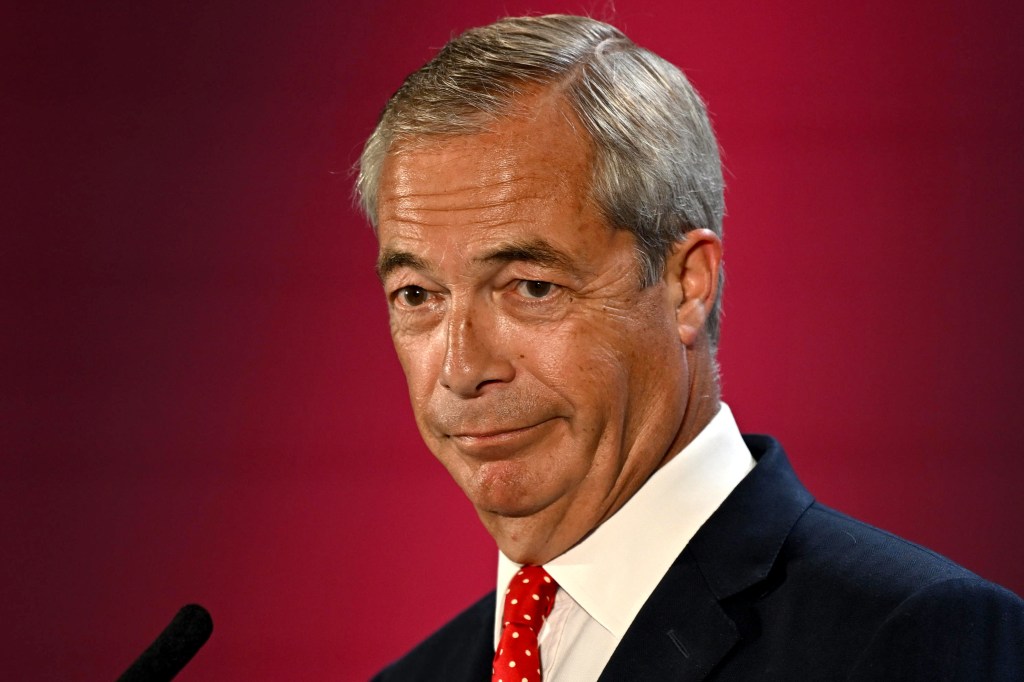Australia and Israel are – were – traditional allies. A former leader of Australia’s Labor party and then president of the United Nations General Assembly, Herbert Evatt, played a significant role in the establishment of Israel in 1948. In recent decades, Labor prime minister Bob Hawke was one of Israel’s staunchest international supporters, once observing ‘if the bell tolls for Israel, it tolls for all of us’.
That was then. Now, Australia’s Labor government, headed by left-wing prime minister Anthony Albanese, and his factional ally, foreign minister Penny Wong, are clear that their sympathies are no longer with Israel almost two years after the 7 October atrocities.
Last week’s decision that Australia’s government will recognise Palestine at next month’s UN General Assembly session was message enough to Israel’s prime minister, Benjamin Netanyahu, and his government. This week, however, the deterioration of relations between Canberra and Jerusalem went toxically further.
What a farce of tit-for-tat and name-calling
With almost no notice, Albanese’s government cancelled the visa of Simcha Rothman, a senior right-wing member of Netanyahu’s governing coalition and chairman of the Knesset’s Constitution, Law and Justice committee. On Tuesday, Rothman was due to start a short speaking tour organised by the conservative Australian Jewish Association. According to the Association’s chief executive, Robert Gregory, Rothman was to engage with and support the local Jewish community as it confronts rising anti-Semitism. His visa was applied for five weeks ago and approved ten days ago. If Rothman was going to be knocked back, Gregory told Australian TV, the visa should never have been issued.
Indeed, the exercise looks intended to make a political point. The Australian Department of Home Affairs cancelled Rothman’s visa. In a long and detailed official statement of reasons, the bureaucratic decision-maker justified the decision, concluding:
I am satisfied that the visa holder’s presence in Australia would or might be a risk to the good order of the Australian community or a segment of the Australian community – namely the Islamic community.
There’s no question Rothman wouldn’t be best friends with Australian Muslims. He is, after all, from one of Israel’s conservative religious parties. Some of his public statements on the conflict in Gaza have been, to put it mildly, intemperate and robust, but it also appears that selective quotes on Gaza and Hamas were taken from Rothman’s media interviews to support the decision. But as an elected member of Israel’s parliament, whose visit was mainly to be focused on Australia’s Jewish community, should he have been banned not only from entry to Australia now, but for the next three years?
Home Affairs minister Tony Burke thinks so. ‘Our government takes a hard line on people who seek to come to our country and spread division,’ he said.
If you are coming to Australia to spread a message of hate and division, we don’t want you here. Under our government, Australia will be a country where everyone can be safe, and feel safe.
Indeed, even though his official delegate signed the decision, it’s inconceivable that Burke would not have been consulted. Given his own Sydney constituency has a large Muslim minority, his harsh language on the visa cancellation is hardly surprising.
Nor did the Australian government ban several controversial Islamist visitors undertaking speaking tours in the past year. These included speakers who, on the record, celebrated Hamas and its barbaric actions.
After Israel’s foreign minister, Gideon Sa’ar, quickly retaliated for Rothman’s treatment by cancelling the visas of three Australian officials attached to the Palestinian Authority in Ramallah, his counterpart Wong aggressively went further, declaring:
At a time when dialogue and diplomacy are needed more than ever, the Netanyahu government is isolating Israel and undermining international efforts towards peace and a two-state solution.
She added, ‘This is an unjustified reaction, following Australia’s decision to recognise Palestine.’ Like a quarrelling spouse determined to defy facts to win their point, Wong sought to blame Israel for her own government’s precipitate actions against an Israeli MP. Dialogue and diplomacy, indeed.
Yet the spat got still worse. Angered by Australia’s decision to recognise Palestine, and obviously stung by personal reflections on him by Albanese in justifying Australia’s recognition decision, Netanyahu himself let fly on Twitter. He also wrote a caustic open letter to his opposite number, labelling Albanese ‘weak’ and, effectively, an enabler of anti-Semitism. To which home affairs minister Burke replied, telling the Australian Broadcasting Corporation, ‘Strength is not measured by how many people you can blow up or how many children you can leave hungry.’
What a farce of tit-for-tat and name-calling. Netanyahu took the bait, but having declared words are bullets, the Australian government fired a fierce fusillade of its own.
Relations between Australia and Israel are now more than frayed: they’re absolutely tattered. Having rushed to join Britain, France and Canada in recognising a Palestinian state in a fit of ‘me too’, thereby winning Hamas’s praise, Albanese and his ministers are using Palestine recognition less to influence outcomes in Israel and Gaza and more to prove to their left-wing activist supporters, and Muslim voter base, just whose side they are on. Him being little loved in Australia, Netanyahu’s over-the-top reaction perversely benefits Albanese in the court of Australian public opinion.
Australia’s government willingly accuses their cancelled Israeli visitor, Rothman, of fomenting discord and division. Yet they are doing precisely that themselves. In this political climate, many in Australia’s Jewish community no longer feel safe there, and some are contemplating leaving the country of their birth. Rightly or wrongly, they feel their own government is abandoning them.
Australians smugly like to think of themselves as a diverse but harmonious people. As this tawdry diplomatic episode highlights, however, Australia’s much-vaunted multicultural society increasingly is fragmenting into a loose collection of ethnic and religious tribes, its politics pandering to what divides, not what unites.







Comments